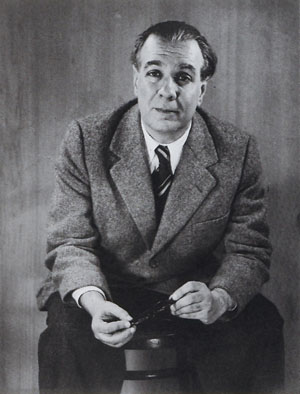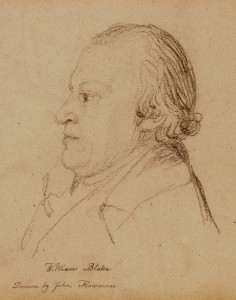When Jorge Luis Borges taught English at the University of Buenos Aires, he delivered his lectures off the cuff. It was a “you had to be there” situation – until now. Students have offered their tapes of the lectures, and editors reconstructed the course. Voilà! Twenty-five lectures, all from 1966, have been published in Professor Borges: A Course on English Literature.
According to Publishers Weekly:
“This mesmerizing volume preserves the eclectic, erudite, and charismatic style of Argentine writer Borges … Borges moves effortlessly between subjects, almost overloading the senses with facts, digressions, and interpretations. While the lectures are not all equally compelling, there is enough here to keep the reader moving forward, and Borges’s delight and passion for every author shines brightly. As the afterword explains: ‘What Borges tries to do as a professor, more than prepare his students for exams, is excite and entice them to read the works and discover the authors.’ Over 40 years later, he is still achieving that goal.”
Here’s Borges speaking on “the Wolf” and William Blake:
On Beowulf –
The name in itself is a metaphor that means “bee-wolf,” in other words “bear.” It is truly a long poem: it contains a little fewer than 3,200 lines, all of which follow the law of Germanic versification: alliteration. Its language is intricate; it makes constant use of what is called “hyper-baton,” that is, the alteration of the logical sequence of words in a sentence…. It was previously believed that the style of Beowulf belonged to a primitive, barbaric stage of poetic creation. Subsequently, however, a Germanist discovered that lines from the Aeneid were woven into the poem, and that elsewhere, passages from that epic poem were brought in, then interspersed in the text. Hence, we have realized that we are not dealing with a barbaric poem, but rather with the erudite, baroque experiment of a priest, that is, someone who had access to Latin texts, and who studied them…. The Germanist [Neil] Ker has criticized Beowulf, for he considers the plot to be childish.4 The idea of the hero who kills an ogre, that ogre’s mother, and then a dragon, belongs to a children’s tale. But these elements are, in fact, inevitable; they are there because they must be. Once he chose that legend, the author could not possibly omit the ogre, the witch, or the dragon. The public expected them, because it knew the legend. Moreover, these monsters were symbols of the powers of evil; they were taken very seriously by that audience.
On William Blake –
William Blake, on the contrary, remains not only outside the pseudo-classic school (to use the most elevated term), and that is the school represented by [Alexander] Pope, but he also remains outside the romantic movement. He is an individual poet, and if there is anything we can connect him to—for, as Rubén Darío said, there is no literary Adam—we would have to connect him to much more ancient traditions: to the Cathar heretics in the south of France, the Gnostics in Asia Minor and Alexandria in the first century after Christ, and of course to the great and visionary Swedish thinker, Emmanuel Swedenborg. Because Blake was an isolated individual, his contemporaries considered him a bit mad, and perhaps he was. He was a visionary—as Swedenborg had been, of course—and his works circulated very little during his lifetime. Moreover, he was better known as an engraver and a draftsman than as a writer…. Blake’s work is extraordinarily difficult to read because he created a theological system. In order to express it, he had the idea of inventing a mythology, and critics don’t agree on what it means. There is a poem by Blake—it is included in all the anthologies—where this problem is expressed, but of course is not resolved…. In Songs of Experience, Blake deals directly with the problem of evil, and he symbolizes it, in the manner of the bestiaries of the Middle Ages, as a tiger. The poem, which consists of five or six stanzas, is called “The Tyger,” and was illustrated by the author.
Read more excerpts here.
Tags: Alexander Pope, Emmanuel Swedenborg, Jorge Luis Borges, Neil Ker, William Blake





August 13th, 2013 at 2:15 pm
Thank you for alerting us to these lectures by one of the great lights of the twentieth century.
August 13th, 2013 at 2:59 pm
You’re certainly welcome, Max!